Check out our FAQ page for additional information
Choose a topic that is interesting to you and which will work within your assignment's parameters. Usually your research goal is to locate published scholarship (books and journal articles) to read on your topic.
Remember to evaluate the accuracy of your resources, and think critically about their arguments. When in doubt, check with your course instructor or contact the Urban Studies research librarian.
First, read a good summary of an urban studies topic in an urban studies or sociology encyclopedia, like those listed in the Encyclopedias & Dictionaries and Handbooks & Manuals sections below. Select a topic that is of interest to you. Once you know the basics on your topic, search for more published scholarship, using library databases, OneSearch (for books and articles) or other library catalogs.
Suggested subject terms for catalog and database searching:
-Cities and Towns
-Sociology, Urban
-Urban Economics
-Urban Geography
Searchable online catalogue containing library holdings from around the world, especially in the United States and Canada. Find books on certain subjects, identify subject headings, learn which libraries have books and other materials, and borrow items by linking through to the Library's Interlibrary Loan service.Catalogue Link: OneSearch.
When you are searching in OneSearch you can select “All CUNY Libraries” instead of “Queens College” to search across CUNY. If you see a book you want, use the “Request Item” button to have it sent here via CLICS
If you'd like to search outside of Queens College, you can use WorldCat to search libraries across the United States, and some outside of it. Many of the same search strategies I've recommended for the CUNY Catalog also work very well in WorldCat. If you want to use a book you find it WorldCat, you can order it through Interlibrary Loan.
A journal article is written by a scholar or an expert, and provides a detailed analysis of a topic. It is written in the specialized language of a scholarly discipline (such as Sociology). It documents the resources the writer used by providing bibliographic citations such as footnotes, endnotes, and bibliography so a reader can check or repeat the research the scholar has completed.
A scholarly journal is edited by scholars, and any article published in the journal has usually been approved by the author's peers or by referees (other scholars expert in the subject who serve as editors or readers and critique the article before it is accepted for publication). This is why most scholarly journals are referred to as a Peer-Reviewed or Refereed journals. Use the following databases to search for journal articles on a topic. You can use other Databases depending what topic you are researching.
Academic Search Complete is a multidisciplinary database of scholarly journals, magazines, and news sources. It is a good starting point for research in all areas of study.
Catalogue Link: OneSearch.
Gale In Context: Opposing Viewpoints is the premier online resource covering today's hottest social issues, from capital punishment to immigration to marijuana.
Social Sciences Full Text (H.W.Wilson) covers the latest concepts, theories, and methods from both applied and theoretical aspects of the social sciences.
Catalogue Link: OneSearch.
Provides full-text, Peer-Reviewed sociology journals covering many studies including gender studies, criminal justice, social psychology, racial studies, religion, and social work.
Catalogue Link: OneSearch.
Indexes the international literature of sociology and related disciplines in the social and behavioral sciences; (1952-current).
Catalogue Link: OneSearch.
This bibliographic research database is essential to the study of cities and regions. It covers subjects of key relevance to the discipline including urban affairs, community development, and urban history.
Catalogue Link: OneSearch.
JSTOR is a multi-disciplinary collection of scholarly journals and e-books that include primary sources, images, and more.
Catalogue Link: OneSearch.
JSTOR provided expanded access during the pandemic (June 2020-June 2023). Expanded access expires on June 30, 2023. CUNY will reinstate that access beginning in January 2024.You may review the Electronic Resources Status Dashboard for updates. Questions? Email: access-support@qc-cuny.libanswers.com or Open a Ticket!
Collection of scholarly journals covering business, humanities, social sciences, science, technology, and medicine.
Catalogue Link: OneSearch
Newspaper articles can be used to explore a potential topic, or may be a necessary part of the source material an urban studies researcher needs to read because of the nature of the topic, for example, a topic dealing with a local region, such as New York City.
The best way to access New York City newspapers is through its Sources section. Instructions:
A list of New York State newspapers is displayed from which you can select New York Post, New York Sun, Newsday, etc.
Full-text of the newspaper since 1980, images NOT available. Updated daily.
Full-page and full-article images, with searchable full-text from its first issue. Provides access to every page of the newspaper for the years 1851-2004.
A sophisticated database program that can be used to view and analyze an array of community and regional data from neighborhoods and other local areas of New York City and New York State; includes population statistics, immigration trends, socio-economic indicators, birth and death data, hospitalizations, local trade data, and more, with data from 1980, 1990, 2000, 2010 census, and other sources.
New data is not added to the system. It is relatively inactive.
Social Explorer provides interactive demographic data. Its mapping tools allow data to be easily visualized, and it also allows users to extract data table reports. Users may generate custom reports and maps, and they may create personal accounts to save their reports and maps.
Catalogue Link: OneSearch.
To use Social Explorer remotely, save, and share projects, please create a personal account.
Reports, studies, and data are sometimes available from the major scholarly organizations in urban studies.
Reports or studies written by research institutes or non-profit think-tanks can also be useful.
Continue your search for reports, studies, data, statistics, and information by browsing these web gateways for urban studies.
